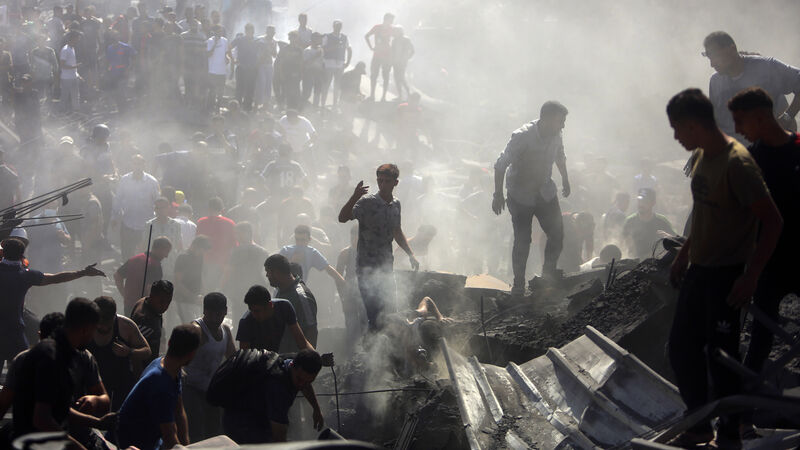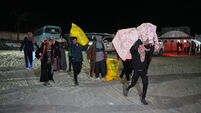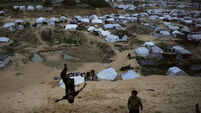UN chief uses rare power to demand immediate ceasefire in Gaza

Palestinians inspect the rubble of destroyed buildings following Israeli airstrikes on the town of Khan Younis, southern Gaza Strip (Mohammed Dahman/AP)
UN secretary-general Antonio Guterres used a rarely exercised power on Wednesday, urging members of the UN Security Council to demand an immediate humanitarian ceasefire as the conflict in Gaza continues.
His letter to the council’s 15 members said Gaza’s humanitarian system was at risk of collapse after two months of war that has created “appalling human suffering, physical destruction and collective trauma”.














